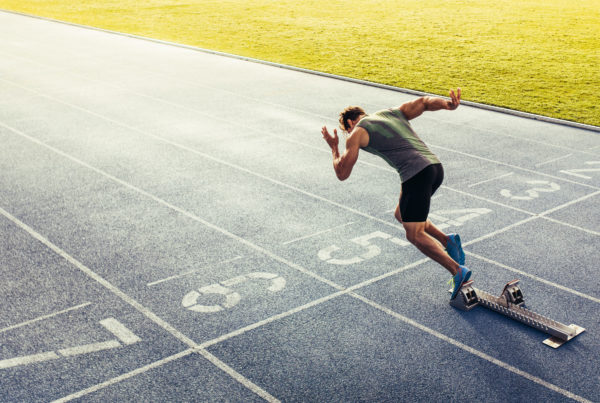”Indiana, how often are you fatigued? Is it physical or mental? You can learn more about the difference between the two in this week's article. We hope you find this helpful and informative!
Reading Time: 5 Minutes
MWi Hacks:
- Understand the difference between mental and physical fatigue
MWi Summary:
- Mental fatigue can be a result of sleep deprivation and lowers alertness, judgment, and reaction time.
- Physical fatigue is related to type of training, not sleep deprivation.
- Mental and physical fatigue can both be present but it appears that physical fatigue does not affect mental performance and mental fatigue does not impact physical performance.
We know athletes are exhausted in more ways than one, but it’s not just physical fatigue that’s affecting their performance. At Fatigue Science, when we talk about fatigue, we’re talking about reduced alertness, reaction time, and effectiveness—all of which manifest in the form of sub-optimal athletic performance. This mental fatigue results from inadequate sleep or when sleep and activities fall outside of our biological need to consistently sleep at night and be active in the day—it’s not the same as fatigue resulting from physical exertion.
”"Even though physical fatigue has little to no impact on mental alertness, the reverse is true—the psychological realm has a great deal of impact on the physical."
Mental fatigue
Those who routinely obtain less than 7-9 hours of interrupted sleep per 24-hour period will have a high homeostatic drive for sleep as the body struggles to restore balance. In addition, scheduling inconsistencies often lead to a high circadian drive for sleep at exactly the wrong times of day as well as to sleep-initiation problems at night.
So, when athletes lose sleep due to any number of factors, when they’re unable to stick to a consistent bedtime due to travel or social engagements, and when they have to train or play at the “wrong” times in a new time zone, they’ll be faced with both a high homeostatic and a high circadian drive for sleep. The result will be impaired judgment, reaction time, and situational awareness—the hallmarks of poor mental effectiveness.
Physical fatigue
Physical effectiveness, or energy, is different. It’s a function of non-sleep and circadian-related factors such as the type, intensity and volume of exercise (or physical labor) as well as muscle fiber composition, neuromuscular characteristics, high energy metabolite stores, buffering capacity, ionic regulation, capillarization, and mitochondrial density. Physical energy can be viewed as the capacity to perform a certain amount and intensity of physical activity for a given period of time. Elite athletes, who routinely engage in high-intensity training, are far less susceptible to physical fatigue than those who are sedentary. They run faster, lift more weight, and perform for longer periods of time due to their enhanced physical conditioning.
The difference between mental and physical fatigue
Mental and physical energy are governed by very different underlying processes—they’re separate biological functions. Having said that, they can coexist.
If one’s physically exhausted due to high-intensity physical activity, they may struggle to run, lift, or play, but their alertness and concentration will remain intact. In fact, most research concludes that physical activity has either a positive effect or more often, little or no impact on mental performance.
However, when a person’s mentally exhausted due to sleep deprivation, their alertness will suffer while most aspects critical for physical performance will be preserved. And while sleep loss affects mood, motivation, judgement, situational-awareness, memory, and alertness, it doesn’t directly affect cardiovascular and respiratory responses to exercise of varying intensity, aerobic and anaerobic performance capability, or muscle strength and electromechanical responses. But, time-to-physical-exhaustion is shorter and their perception of exertion and endurance is distorted.
Even though physical fatigue has little to no impact on mental alertness, the reverse is true—the psychological realm has a great deal of impact on the physical. This is how a competitive decline takes root under conditions of sleep loss.
MWi would like to thank Fatigue Science for sharing this article to support our community. To read the original article and learn more about Fatigue Science please follow this link:
https://www.fatiguescience.com/fatigue-science-blog/






